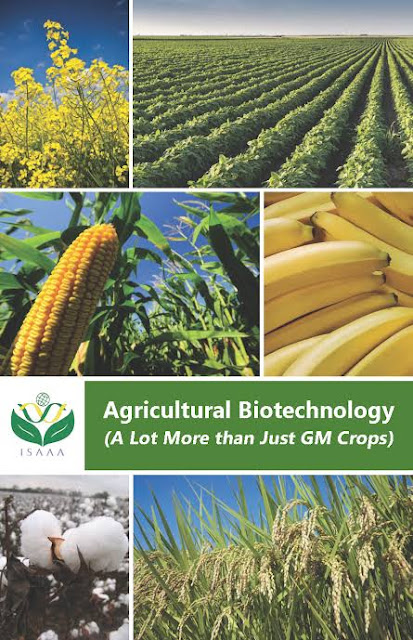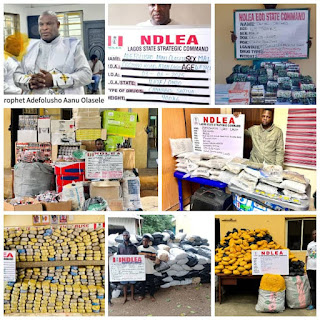Nigeria is making remarkable progress in leveraging agricultural biotechnology. With robust regulatory structures, real-world biotech crop adoption, and growing public engagement, the country is setting the pace for innovation in Africa. Sustainability and confidence will grow as awareness spreads and more biotech solutions reach Nigerian farms.
Agricultural biotechnology for food security is about using modern biological techniques to improve crops, livestock, and agricultural systems so that they can produce enough safe, nutritious, and affordable food — even under challenges like climate change, pests, and limited resources. Agricultural Biotechnology is the use of new scientific techniques based on our understanding of DNA to improve crops and livestock that are not possible with conventional breeding alone.
Biotechnology is seen as essential to improve food security, climate resilience, and economic growth by helping farmers manage pests, drought, and nutrition deficiencies. Biotechnology provided innovative tools to improve agricultural productivity and safeguard food crops from the impacts of climate change, such as heat, floods and drought.
Agricultural biotechnology uses tools like genetic engineering, molecular markers, tissue culture, and bioinformatics to develop plants and animals with improved traits. It can:
- Increase yields
- Improve nutritional quality
- Enhance resistance to pests, diseases, and environmental stresses
- Reduce post-harvest losses
How Biotechnology Supports Food Security
Food security depends on four pillars:
- Availability – Enough food produced locally or imported
- Access – People can afford and physically reach food
- Utilization – Food is safe, nutritious, and culturally acceptable
- Stability – Supply is reliable over time
Biotechnology addresses each:
-
Availability:
- Genetically modified (GM) crops like drought-tolerant maize or pest-resistant Bt cotton boost productivity.
- Biofortified crops (e.g., Golden Rice enriched with Vitamin A) tackle nutrient deficiencies.
-
Access:
- Higher yields and reduced production costs can make food cheaper for consumers and more profitable for farmers.
-
Utilization:
- Improved nutritional content (e.g., high-iron beans, protein-rich sorghum) helps combat malnutrition.
-
Stability:
- Crops resistant to climate extremes and diseases ensure consistent harvests year after year.
Challenges & Considerations
- Regulatory approval and biosafety frameworks
- Public perception and misinformation about GMOs
- Equitable access to technology for smallholder farmers
- Intellectual property rights that can limit seed saving
- Environmental concerns like potential biodiversity impacts
- African Development Bank (AfDB) and other international government agencies should mobilize for funds for establishing agricultural processing zones in all Nigerian states and efforts should be aimed at reducing post-harvest losses and strengthening value chains.
- International bodies in their support should mainly focuse on mechanized farming equipment, farmer training, and service centers to transition Nigeria from subsistence to commercial agriculture .
- The Nigerian government should significantly increase funding for GMO technology, because public support remains minimal. Budget aloccated most times is limited and Nigeria need stronger political and financial commitment to fully harness agricultural biotechnology, especially given emerging innovations like TELA maize. Nigeria has made strategic strides in agricultural biotechnology—setting up regulatory institutions, approving biotech crops like TELA maize, and launching infrastructure hubs. However, domestic funding remains limited, and large-scale investments have been mostly external (e.g., Brazil, AfDB). To truly scale biotech-driven solutions for food security, sustained domestic investment and stronger R&D support are vital.
- Nigerian government should help already established biotechnology hubs across the six geopolitical zones, focusing on genetic engineering, crop improvement, and support for biotech startups leveraging Nigeria’s biodiversity.
The Future Of Agricultural Biotechnology
- Genome editing (e.g., CRISPR) for precise, low-cost improvements without introducing foreign DNA.
- Synthetic biology for creating entirely new traits.
- Microbiome engineering to improve soil health and crop resilience.
- Climate-smart biotech crops tailored to local conditions.






